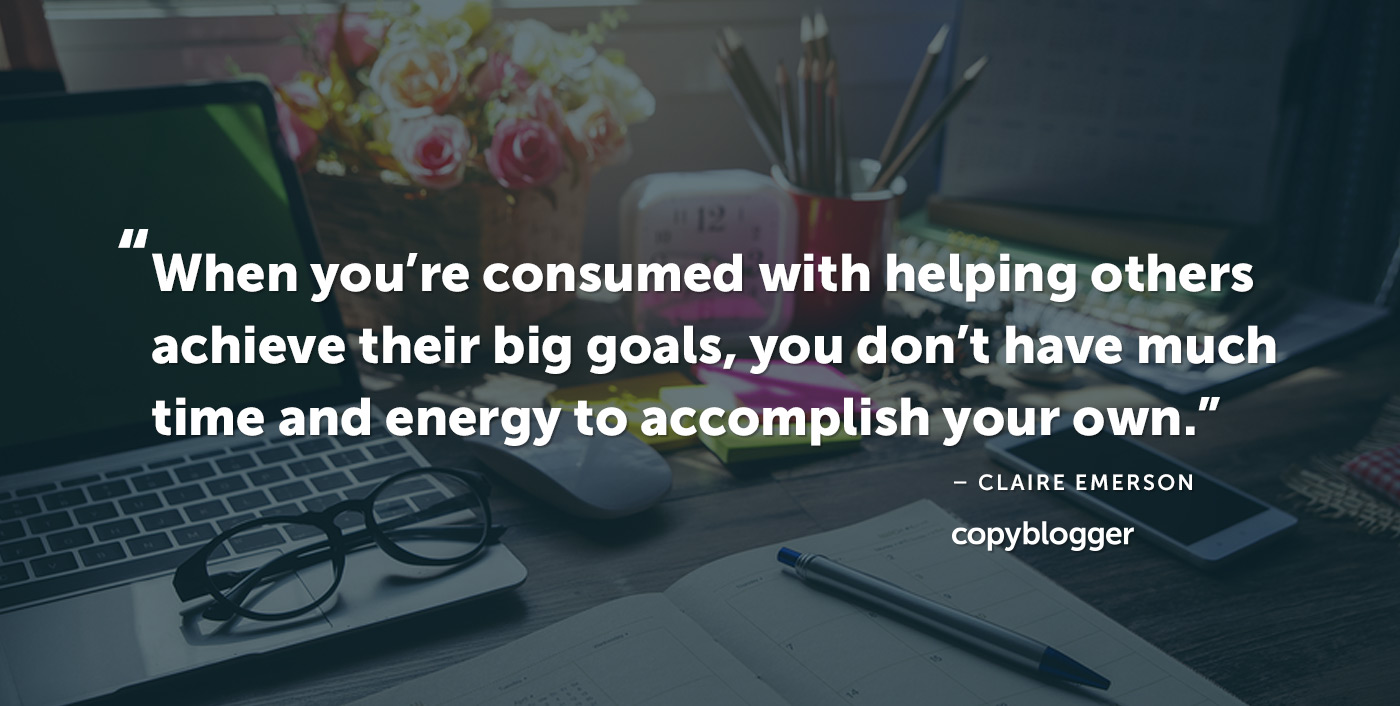When you work with clients, their projects become your projects. But rather than let another year go by — where your important goals and personal projects get pushed aside — let’s take a look at 10 tried-and-tested techniques for making significant progress. Or “one more thing” we might need before we start. So before I begin a new project, I like to list out all of the things I might use as excuses for not getting started (or being able to finish). Visualize your finished project A well-designed project has an effective action plan. When you want to make progress, focus on the first step, first. Pick a task on your project list (perhaps one you’ve been putting off) and work your way through these four questions: Is this task something I can live without? This stage of the funnel is about elimination and giving yourself permission to ignore certain tasks. If you’ve gotten to the end of the funnel and answered “no” to all of the questions, then you have established a priority. Hold yourself accountable Building in some accountability is a super effective way to start and stay on track with a new project.

When you work with clients, their projects become your projects.
And when you’re consumed with helping others achieve their big goals, you don’t have much time and energy to accomplish your own.
Of course, it’s natural for your paid work to take priority. After all, there is rent to pay and mouths to feed.
But often when we put off the things we really want to accomplish (and accomplish well), the lack of progress toward our goals leaves us feeling sad and disappointed. Like we’re wasting time by not doing something we really want to do.
Basically, it sucks when you don’t feel like you’re progressing how you planned.
But rather than let another year go by — where your important goals and personal projects get pushed aside — let’s take a look at 10 tried-and-tested techniques for making significant progress.
1. Give yourself permission to start before you feel ready
Prioritizing our own projects can be challenging.
There’s always something else we could be doing. Or “one more thing” we might need before we start. Not to mention the fear that we’ll make the wrong moves and end up failing.
But, predictably, these perfectionist tendencies can only be conquered with one thing: action.
So deliberate, consistent practice (and the permission to be imperfect) is what will produce real progress toward your goals.
Allow yourself to start before you feel ready — making sure you stay flexible and willing to adjust your action plan as needed.
2. Shift your perspective: “Have to” vs. “Get to”
“You can build a work life around deadlines. You can procrastinate, pay the late fines and push through the last minute emergencies because you need all of that in order to get to ‘have to’ mode.
“Or, you can follow the path of the most productive and happy people you know. By redefining the work you’ve chosen to do as something you get to do.” – Seth Godin
If you’ve been struggling to start a new project (or make a decision about what to do next), consider reframing it as something you “get to do” rather than “have to do.”
This mindset shift can transform the way you see your work and propel you from a state of procrastination into one of focused action.
3. Use a simple system to move past the “idea phase”
The overwhelm involved with starting a new project can be paralyzing — and it’s often a result of the endless stream of other “amazing” ideas that bombard our thoughts when we’re trying to decide what to do next.
This is where a system for capturing your ideas becomes invaluable.
Simple systems improve the way you work and are essential for making consistent progress toward your goals.
If you’re getting stuck with idea overload, Sonia has some fantastic practical advice for capturing your creative ideas (and clearing your head in the process).
4. Embrace smaller (more effective) steps
“When making plans, think big. When making progress, think small.” – James Clear
Ever stalled on a new project because it felt too big to achieve? I have (many times).
Usually it’s because I’m so focused on how long something will take or how much more there’s still to do, and I give up before I even begin.
Big projects need to be broken into small parts in order to feel doable.
I’m now in the habit of “drilling down” into each task I set for myself. My goal is to make it as small as possible so it becomes remarkably easier to start and finish.
I also avoid giving myself large chunks of time to “focus” on my project, because I’ve found that restriction — not freedom — with my time frames works better for me.
Shorter time frames + smaller tasks = faster progress.
Try it!
5. Don’t start with “why” … start with “why not”
“We have more ability than willpower, and it is often an excuse to ourselves that we imagine that things are impossible.” – François de La Rochefoucauld
When it comes to self-management, a little self-awareness goes a long way.
So before I begin a new project, I…

COMMENTS